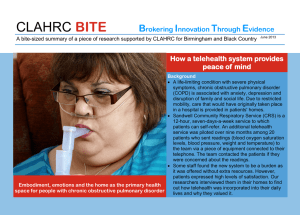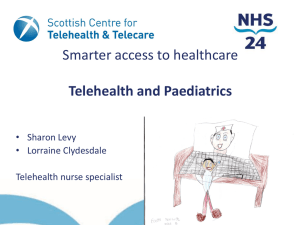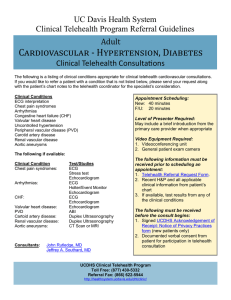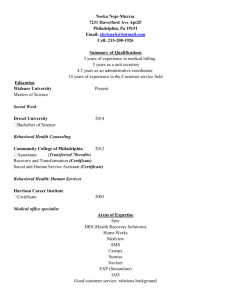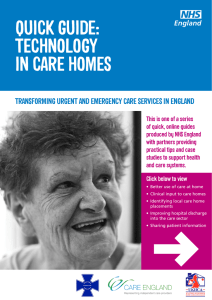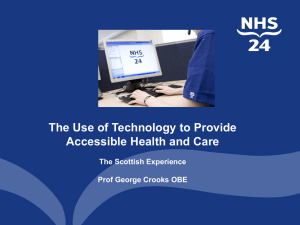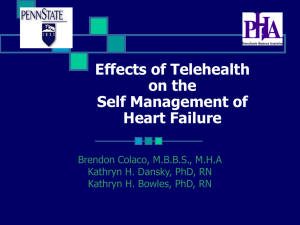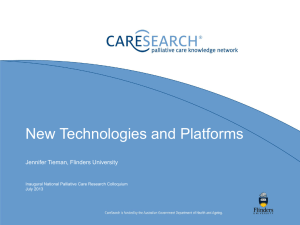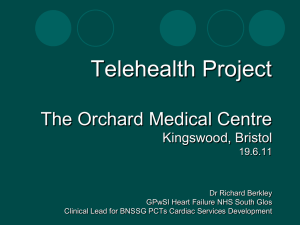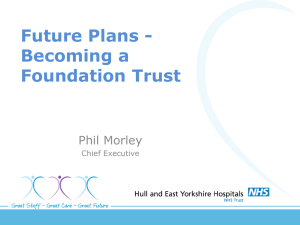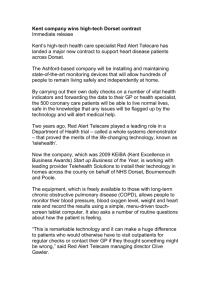Dr Nicholas Robinson - Clinical Director Long Term
advertisement
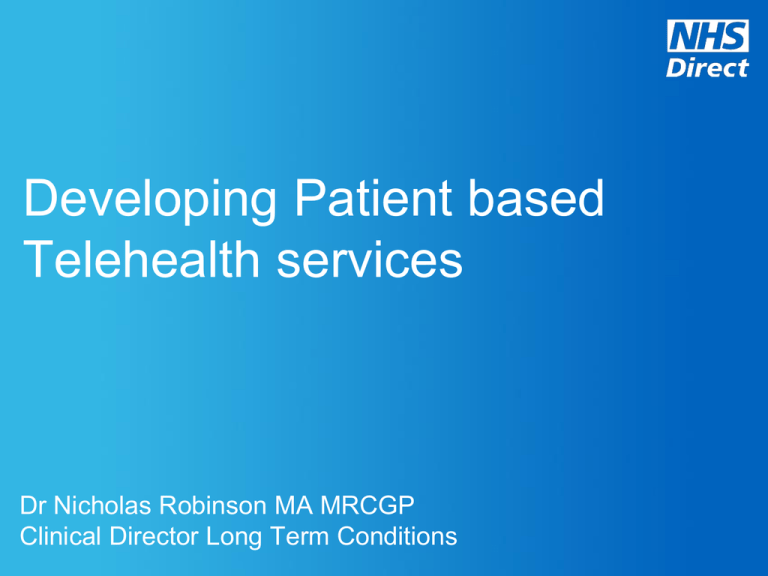
Developing Patient based Telehealth services Dr Nicholas Robinson MA MRCGP Clinical Director Long Term Conditions Why Telehealth? Demographic problems Patient numbers growing Elderly Long term conditions (15m) Carer numbers falling Single households Older carers with elderly relatives Fewer NHS professionals Pensions / NHS changes Matching care to user needs The Pyramid of Doom Case Management Disease Management Supported Self Care NHS Wellness Level 3 Highly complex (5%) Level 2 Level 1 POPULATION WIDE PREVENTION High risk (15%) Low risk (80%) Level 3 Level 2 Level 1 The general public: •Smoking NHS Health Risks Program •Drinking •Eating •Sedentary •Bad habits •Mental health What do patients want? 1 Care close to them (at home) Feeling secure and safe Feeling they have someone they can contact Feeling someone is watching over them Understanding medications – new/changed/why/side fx/need for repeats what to do if something goes wrong. What do patients want? 2 At Home Regular contact with NHS services Support /education Enhanced understanding of diseases Ditto drugs (and improved compliance) Supported self-care How can we improve Patients experiences? Part of improved service offering From admission to discharge to life in the community Planning starting at admission Problems / suitability defined for follow-up service Need for 30 day support (Home testing / monitoring) Need for longer term support (Telehealth service) Tailoring device to patient Telecare eHealth Assistive Telemedicine Technology Telehealth Proactive Environmental Lifestyle calling controls monitoring Social Supported Vital signs Dementia alarms discharge monitoring monitoring Homecare Patient Care monitoring reminders information What is telehealth? What do Telehealth services offer currently? 7000 patients monitored daily (1.2m for Telecare) Focus on COPD / CCF Current WSD pilot results pending (RCT for 6000 patients) Developing 30 day discharge agenda Challenges Not acute service (5 days / 8-6pm) 7 day installation delay Excluded patients (20%) Fixed installation for stationary patients! Limited clinical engagement What is needed for widespread take-up of services? Patient engagement not about cost-saving may be only option Clinician engagement Not about cost-saving Allows focused services based on current needs Commissioner engagement Evidence Value for money Bloodpressure Cuff Cholesterol Monitor Scales NHS Care Record Glucose Sensor Pulse Oximeter Telehealth Care Record Medication Tracking WWW Elderly living independently Separate Health & Social Care Systems Home Hub Appliance Coordination Required Healthcare Professionals Social Worker eSAP Home Automation Security Wireless Network • Lights • Doors windows • Motion / Activity • Bed • Drawers • Kitchen • Bathroom NHS Direct Step by Step Development? Tailoring of service to patient needs Suitable patients Numbers / cost Suitable patient contact channel £500 to call ambulance £50 to visit your GP £20 to call NHS Direct £1daily for Telehealth £0.13 to assess digitally Web / phone / text based service interaction? 24/7/365 call-centre support Phone-based service (30 day discharge) Evolution to Telehealth monitoring if suitable Suitable device Fixed hub / Mobile device / Tablets Telehealth TTA?? Different Types of Health Hubs What is monitored? Patients health, symptoms , well-being Metrics Weight BP PO2 Temperature Glucose Linked by wire / Bluetooth / Patient entry What do patients say? N Yorks PCT Questionnaire 4/11 Where are we going? Urgent Care matrix NHSD / 111 / OOH / Urgent GP / WICs Large scale telehealth services Working with Bosch, Docobo & Honeywell Need data exchange to prevent duplication and improve effectiveness and timeliness of care Consider needs / expectations of patients for care channels now and in future Web / Voice / face to face The future? The Present!
